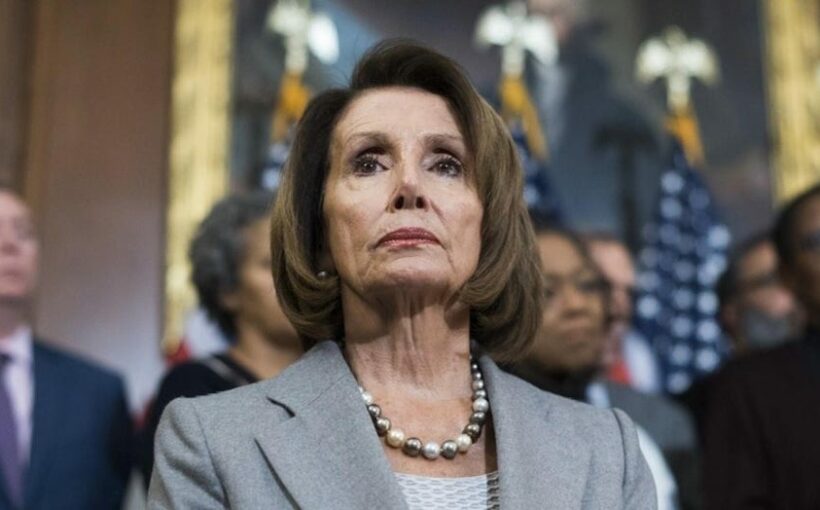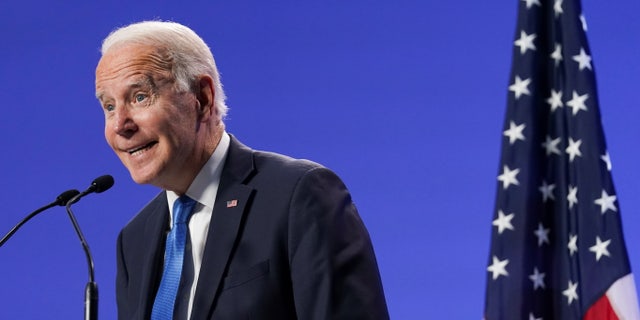Peter Doocy: Democrats say trillions for climate change is ‘a start’
Fox News White House correspondent discusses Biden’s ‘Build Back Better’ plan — that is cheered by most Democrats despite Republican concerns over fiscal responsibility and inflation
The recent climate summit in Glasgow provided plenty of theater. Perhaps nothing was more theatrical than the global shakedown effort staged by a group of African nations that demanded the developed world hand over $1.3 trillion every year to compensate them for the hardships delivered by climate change.
That preposterous figure – twice the GDP of Belgium – disappeared from press accounts almost immediately since even climate activists (aka the liberal media) recognized that the outlandish sum would likely blow up any progress toward making wealthy nations pay for past emissions.
The demand highlights the non-serious negotiations that characterize these yearly U.N.-sponsored global gatherings. Since the Paris climate accord was struck in 2015, prosperous countries have promised to provide $100 billion each year from 2020 to 2025 to help underdeveloped nations cope with climate change. That target has not been met once.
In 2019, the OECD claims member nations contributed some $80 billion toward helping poor countries adapt to climate change, which included $14 billion from the private sector, but in 2020 the group fell short of the $100 billion goal.
So, even though $100 billion a year seems a stretch, $1.3 trillion is the new ask.
Of course, the United States is meant to be the major donor, and indeed has taken the lead. As the Wall Street Journal reported, “The Biden administration has pledged to double climate funding to developing countries to $11.4 billion annually by 2024, which would make the U.S. by far the biggest single benefactor.” Nice of Uncle Joe to hand over our money to global petitioners.
Especially nice since the brief history of U.N.-sponsored investing through its Green Climate Fund, the primary vehicle for delivering aid against warming to impoverished nations, has been spotty at best. After some successful investments in Egyptian solar farms, further projects have been canceled thanks to disputes over demands to ensure gender equity in its grants (??) and beneficiaries’ resistance to oversight from donors.
President Biden speaks during a press conference at the U.N. Climate Change Conference (COP26) in Glasgow, Scotland, on Nov. 2, 2021.
(REUTERS/Kevin Lamarque)
The overall climate deal struck at COP26 turned out to be a largely toothless series of platitudes and promises that allowed everyone to finally go home and claim the costly emissions-spewing event, replete with squadrons of private jets, was not an entire waste of time.
The big newsflash was that the final communique actually mentioned the words “fossil fuels” for the first time, apparently akin in shock value to Harry Potter saying “Voldemort” out loud.
The New York Times cheered the “major agreement” that called on governments to “return next year with stronger plans to curb their planet-warming emissions.” Not to sound churlish, but it’s more than likely that next year’s big confab will also require another go-round the year after that, and probably the following year as well.
The message is clear: shame on the United States. It’s a convenient talking point.
Even the bullish Times had to admit, the pact “will not, on its own, solve global warming…” But then, that was only one of the purposes of the gathering.
Progressives have bigger fish to fry. They are not only keen to redistribute wealth in the U.S.; they want to take their rebalancing act global.
The compliant liberal media is helping this push. In a recent front-page article, the New York Times helpfully presented a visual, highlighting the U.S. share of historical emissions. As the Times reports, “A group of rich countries – just 12% of the global population today – produced half of all greenhouse gases in the past 170 years. A quarter of all emissions came from the United States.”
The message is clear: shame on the United States. It’s a convenient talking point. We’ve been the biggest emitter of carbon in the past, we are the richest nation on earth and can therefore be hit up for reparations.
Nothing sells better these days than self-flagellation, except maybe piling onto the United States. We are meant to atone for being the most successful nation in the history of the world because, yes, we have advanced more rapidly technologically and industrialized more broadly than any other country on earth. In the process, the U.S. has created more wealth that the world has ever seen, much of which goes to feed, doctor and support the globe.
Where would the developing world be without the agricultural achievements of the U.S.? The medicines we have created? The import revenues we spew all over the globe?
And who is on the list of “underdeveloped” nations with their hands out? Small nations like the Maldives and Fiji that are legitimately threatened by rising oceans, but also China, because the world continues to play along with the fantasy that Beijing manages a deeply impoverished nation that deserves our help.
Rarely is it acknowledged that China’s progress has been enabled by the vast theft of patents, manufacturing blueprints, software and other trade secrets from companies in the U.S. and the EU over several decades. Or that China’s people would not be so poor if Beijing directed more funds to social safety nets and not the military.
Even rarer is the admission that China is by far the world’s largest emitter of carbon today, and is unrepentant, continuing to build coal-fired power plants.
The push for “loss and damage” payments did not go far. Wealthy nations refused to set up a new fund for mitigation efforts in underdeveloped nations. Instead, they agreed to start a “dialog” about the issue at future summits.
Activists consider this progress and note that wealth transfers to poorer nations are now a prominent part of the climate conversation. Americans, who will undoubtedly be on the hook for the bulk of such payments, need to pay attention.
U.K. head Boris Johnson kicked off COP26 describing it as the “last, best chance to save the planet.” Next year, guaranteed, we’ll have another last, best chance to save the planet. And the year after that, probably, too. Only the setting will change.
Source: Read Full Article




